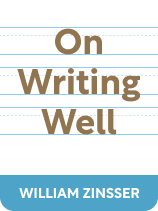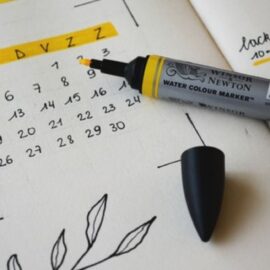

This article is an excerpt from the Shortform book guide to "On Writing Well" by William Zinsser. Shortform has the world's best summaries and analyses of books you should be reading.
Like this article? Sign up for a free trial here .
Do you want to know how to begin a story? What kinds of story leads should you avoid?
Opening a story can be the most intimidating part. The first line of a story is what sets the scene in the readers’ minds, so it should be compelling. However, many writers fall into the same traps.
Here’s how to begin a story without being cliché.
Opening a Story
Deciding how to begin a story is one of the most difficult decisions you’ll make when writing. The first sentence—known as your lead or lede—is your most important one. Your lead should capture your reader’s interest and compel her to keep reading. Give your reader enough information to keep her interested, but don’t spoil your whole story—otherwise she won’t have a reason to keep reading.
He explains that a lead can look different depending on the story and the writer. Some leads may last a paragraph or a page. Others might only take a few sentences. But Zinsser believes shorter leads are more impactful—the faster you can hook a reader’s interest, the faster you can move on and discuss your ideas or topic.
Avoid These Types of Openings
Zinsser admits that there are many different ways to write a good lead, and other writers echo this claim. It can be helpful to know which kinds of leads to avoid, so you can focus on writing one that’s compelling. For a strong lead, avoid these common pitfalls:
- Clichés and bad puns. Not only do these make your reader roll their eyes, but they’re also not a tasteful way to start your piece. For example, a Huffpost article started with this pun: “Authorities did Nazi this coming.”
- Long sentences. The lead isn’t the place to explore too many ideas or tangents—you have the rest of your story to do that.
- Trying too hard. Don’t try to sound too clever or funny because you’ll wind up losing your reader’s interest if they have to figure out your meaning. This tactic also overpromises—usually a piece with a too-clever lead doesn’t have very clever ideas.
- Saying someone “could never have predicted.” This isn’t an informative or interesting way to start a piece because we rarely make accurate predictions about what will happen to us.
- The weather. Usually commenting on the weather doesn’t add interest or meaning, so don’t describe it in your lead.

———End of Preview———
Like what you just read? Read the rest of the world's best book summary and analysis of William Zinsser's "On Writing Well" at Shortform .
Here's what you'll find in our full On Writing Well summary :
- A back-to-basics approach to the craft of writing
- How to practice simple, clear, and engaging writing—even if you're not a writer
- How to effectively put your ideas into words






